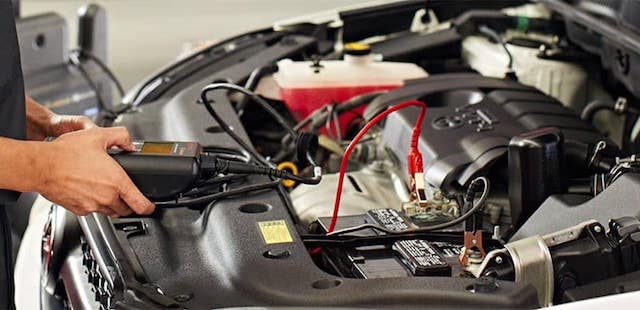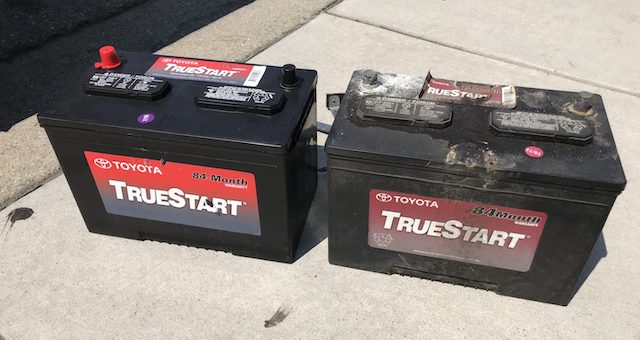How Do Car Batteries Work?
Keeping your Toyota's electrical system in good condition is essential for reliable performance. One of the most important components of this system is the car battery, which plays a crucial role in starting your vehicle and powering its various electrical features. This guide will help you understand the basics of your Toyota’s main starter battery and how it functions.
What Is A Car Battery And How Does It Work?

A car battery is essentially an energy storage unit that provides power to start your engine and support the electrical systems in your Toyota. When you turn the key or press the start button, the battery sends a surge of electricity to the starter motor, which then cranks the engine. Once the engine is running, the alternator takes over, generating power to keep the battery charged and supply energy to other components.
If the battery begins to weaken, you may notice issues such as slow cranking, dim lights, or even a complete failure to start. Regular maintenance and timely replacement are key to avoiding these problems.
For more information about battery pricing and options, click here.
What Does A Car Battery Look Like?
The typical car battery resembles a small, rectangular box, similar in size to a shoebox. It is encased in a durable plastic housing and is relatively heavy due to the lead-acid composition inside. On top of the battery, you’ll find two metal terminals—one positive (red) and one negative (black). These are used to connect the battery to the vehicle’s electrical system.
Batteries often have a date code printed on their label, indicating when they were manufactured. Most batteries last between 3 to 5 years, but this can vary depending on driving habits, climate, and how often the vehicle is used.
What A Car Battery Does
In simple terms, the battery stores electrical energy that is used to start the engine and power accessories like the radio, headlights, and air conditioning. When you turn the key, the battery sends power to the starter motor, which engages the engine. Once the engine is running, the alternator generates electricity to recharge the battery and power the rest of the vehicle’s systems.
This cycle ensures that your Toyota has a continuous power supply, allowing everything from the ignition system to the dashboard lights to function properly.
How Long Does A Battery Last?

Image Credit: TheTrackAhead
Modern car batteries typically last between 3 to 5 years with regular use. However, some batteries may fail earlier due to factors like extreme temperatures, infrequent driving, or internal cell damage. If one of the six internal cells fails, the battery may not hold a charge properly, leading to difficulty starting the vehicle.
If your battery is older than 5 years or showing signs of weakness, it’s wise to replace it before it completely fails. Here are some common symptoms of a failing battery:
- Your car takes longer to start when you turn the key.
- The dashboard lights flicker but the engine doesn’t crank.
- Your headlights or radio don’t work when you try to start the car.
- The interior lights don’t come on when you open the door.
A dead battery can leave you stranded, so it’s important to monitor its health. Regular checkups and consistent driving help maintain battery life by keeping the alternator charging it properly.
Aluminum Nitride (AlN)
Aluminum Nitride Ceramic (Aluminum Nitride Ceramic) is a ceramic with aluminum nitride (AIN) as the main crystal phase.
Aluminum Nitride (AlN) tools,Aluminum Nitride parts,Aluminum Nitride manufacturers and suppliers
Dayue Precision Technology , https://www.dayuechn.com